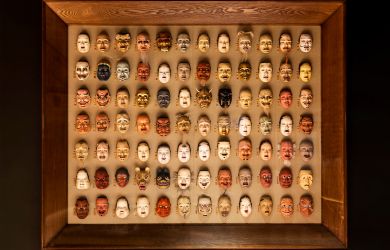
Originally published on metropolis.co.jp on June 2013
PUBLIC ENEMIES

- The Consumer Affairs Agency upbraided Coca-Cola Japan for using the word tokuhou (“news flash”) in ads for a new fiber drink. The agency said consumers might confuse the term with tokuho, a word used to describe healthy food.
- The MPD received 14,104 entries in a contest to name a new type of bank scam where fraudsters pretend to be the victim’s son over the phone. The official name is now “Kaasan, tasukete sagi,” or “Mom, help me scam.”
- The newest hire at the justice ministry’s clerical department is… a juvenile delinquent on probation. Officials hope to foster understanding about criminal rehabilitation.
- The MPD has asked NTT Docomo to be more careful with cellphone-rental companies, some of which are apparently fronts for crime groups.
ONWARD AND UPWARD
- A sexual-minority advocacy group is petitioning the government to have sex-reassignment surgery covered by national health insurance.
- Some Japanese courts are trying to ease the stress on citizen jurors (a.k.a. lay judges) by showing grisly crime-scene photos in black and white.
- The first female director of the Historiographical Institute of the University of Tokyo—the nation’s leading organization for preserving historical documents—took office last month.
- An education ministry panel has recommended medical researchers file a report when they receive corporate donations of ¥2 million yen or more.
HAPPY DAYS ARE HERE AGAIN
- Government officials are warning people to be on the alert for moneymaking scams that “cite the effects of Prime Minister Shinzo Abe’s economic policies.”
- A research team led by a professor at Tohoku Fukushi University in Sendai has developed a wheelchair “that can help the elderly maintain correct posture and improve their quality of life.”
- Mie fishermen successfully freed a 10m-long whale caught in seaweed-harvesting ropes.
- In response to a surge of interest in bonsai among young Europeans—um, really?—Saitama nurseries are to resume exports of the tiny trees to the EU.
YOU DON’T SAY
- Nagoya University researchers believe female rhinoceros beetles may have once had horns but lost them when the appendages became “unnecessary for survival.”
- Fukushima officials report 1,300 cattle starved to death and more than 1,500 were euthanized following the March 11 disaster.
- The former head of a mental home in Chiba was handed one year in prison for “hitting a 50-year-old female resident in the face and stomach.”
- Meanwhile, 1,033 cases of abuse against disabled people were reported in the six months since a law targeting such practices went into effect in October.
AND FINALLY…
- Kobe police arrested two men for selling devices allowing TV viewers to watch satellite channels for free. The men allegedly netted ¥80 million.
- LDP officials plan to tackle child poverty by offering “consultations on family budgeting and career training for parents.”
- The environment ministry may remove goshawks from its list of endangered species. The population of the birds, below 500 in 1984, has bounced back to 5,818 in Kanto alone.
- Bottom Story of the Week: “Abandoned Japanese Bikes in Use by Nurses, Midwives in Ghana” (via Jiji).
Compiled from reports by AP, Japan Today, The Japan Times, Jiji, The Tokyo Reporter, Japan Probe, The Mainichi, The Japan News, AFP, Reuters and Kyodo





